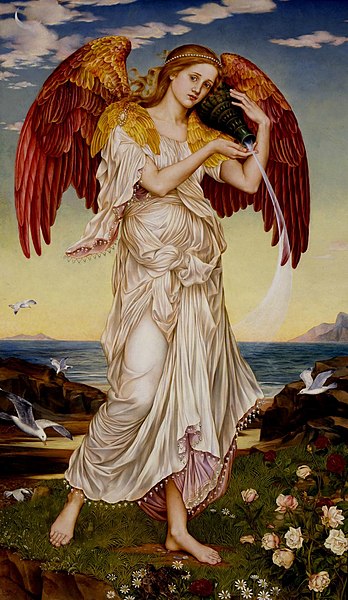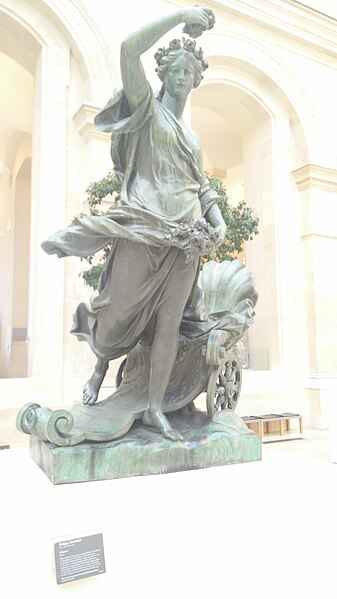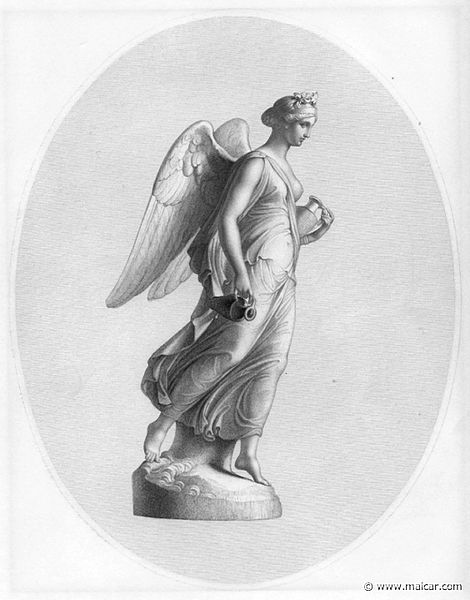In Etruscan Religion and mythology, Thesan is the Etruscan goddess of the dawn, divination, and childbirth and was associated with the generation of life. Romans identified her with their Aurora and Mater Matuta and Greeks with Eos and Leucothea. In Etruria, she received offerings together with the sun god Usil in the liber linteus. She was especially worshipped at Caere's harbour of Pyrgi, where a temple was dedicated to her and a singular series of "daybreak antefixes" was excavated.
An ancient Etruscan mirror depicting the goddess Thesan.
In ancient Greek mythology and religion, Eos is the goddess and personification of the dawn, who rose each morning from her home at the edge of the river Oceanus to deliver light and disperse the night. In Greek tradition and poetry, she is characterized as a goddess with a great sexual appetite, who took numerous lovers for her own satisfaction and bore them several children. Like her Roman counterpart Aurora and Rigvedic Ushas, Eos continues the name of an earlier Indo-European dawn goddess, Hausos. Eos, or her earlier Proto-Indo-European (PIE) ancestor, also shares several elements with the love goddess Aphrodite, perhaps signifying Eos's influence on her or otherwise a common origin for the two goddesses. In surviving tradition, Aphrodite is the culprit behind Eos' numerous love affairs, having cursed the goddess with insatiable lust for mortal men.
The Gates of Dawn, by Herbert James Draper
Eos by Evelyn De Morgan (1895)
L' Aurore, 1693 bronze statue of Eos by Philippe Magnier (1647-1715), on display at Louvre Museum, France.
Eos, Sig. Guglielmi's drawing of a statue of Aurora by John Gibson (1790-1866).





